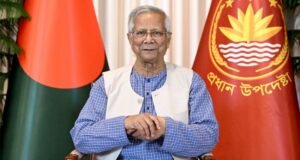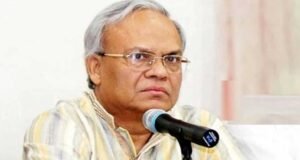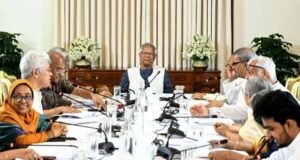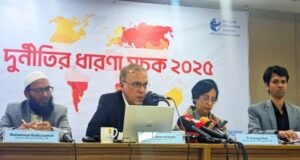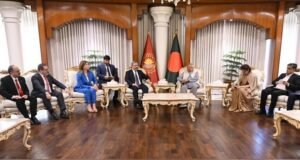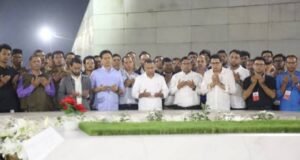
Indian External Affairs Minister S Jaishankar has said New Delhi is closely monitoring developments in Bangladesh following the circulation of a so-called ‘Greater Bangladesh’ map, which showed parts of several Indian states as part of Bangladesh.
The issue, raised during a session of the Lok Sabha, has sparked concern over its potential implications for India’s national interests and security.
Responding to a question from a BJP Member of Parliament, Jaishankar confirmed that the matter had been officially raised with the Bangladesh government. The concern stemmed from a recent exhibition held at Dhaka University, allegedly organised by a group called “Saltanat-e-Bangla”, which is said to have links with a Turkey-based NGO, the Turkish Youth Federation.
The MP claimed that the group had released a controversial map under the banner of ‘Greater Bangladesh’, portraying Indian territories as part of Bangladesh. “Such activities raise serious questions and must be addressed firmly,” he stated.
In reply, Jaishankar informed Parliament that the Indian government had already taken the issue up with Dhaka. Citing the response received through official diplomatic channels, he said, “The Bangladesh government, referencing its official fact-checking platform ‘BanglaFact’, clarified that the map was part of a historical exhibit held on 14 April 2025, during the Pahela Baishakh celebration at Dhaka University. The map displayed was from the medieval Bengal period.”
Jaishankar added that the organisers of the exhibition had categorically denied having any links with foreign organisations or entities. Moreover, the Bangladesh government assured India that no organisation named “Saltanat-e-Bangla” officially exists in the country.
Despite the clarification, Jaishankar emphasized that India remains particularly attentive to issues involving Bangladesh, especially those that might affect internal security. “We are deeply focused on matters that touch upon our national interest. India continues to monitor developments in Bangladesh closely to safeguard our internal security,” he told lawmakers.
 Weekly Bangla Mirror | Bangla Mirror, Bangladeshi news in UK, bangla mirror news
Weekly Bangla Mirror | Bangla Mirror, Bangladeshi news in UK, bangla mirror news


